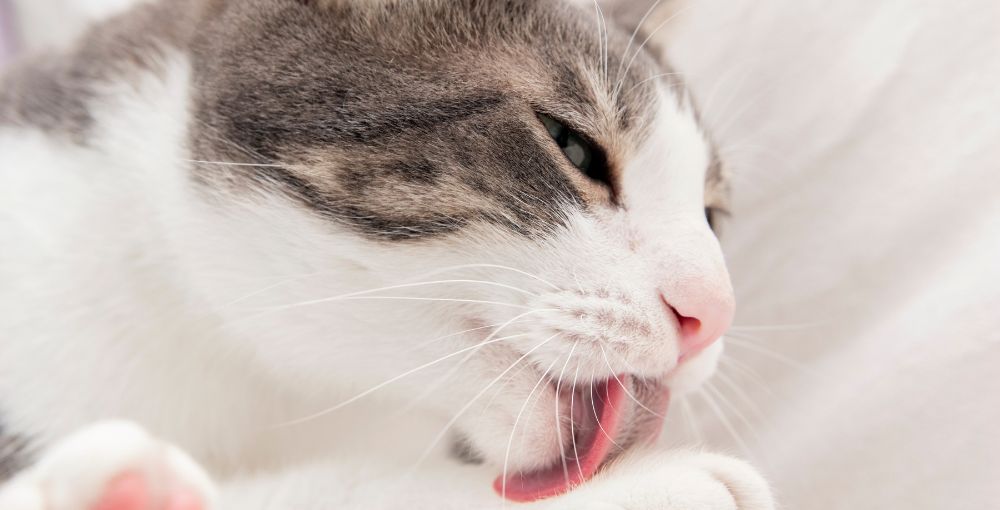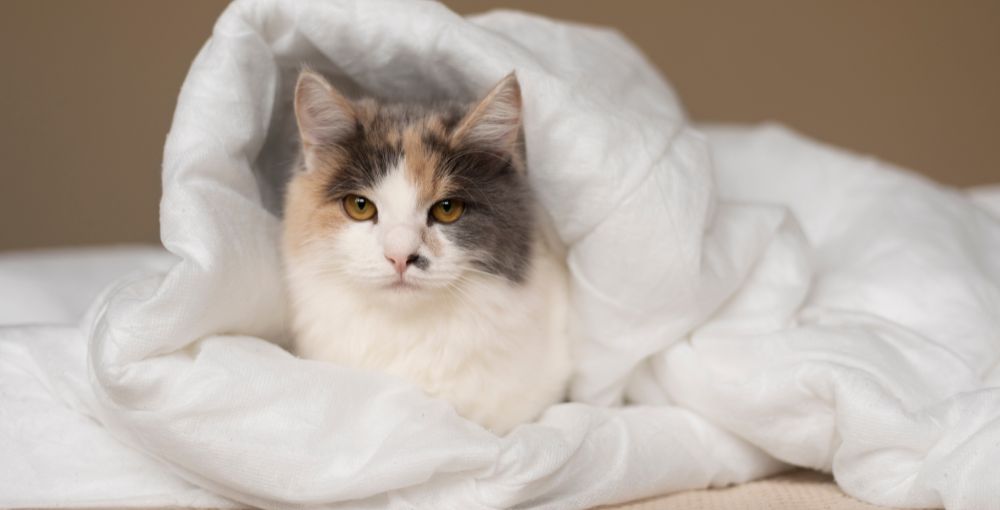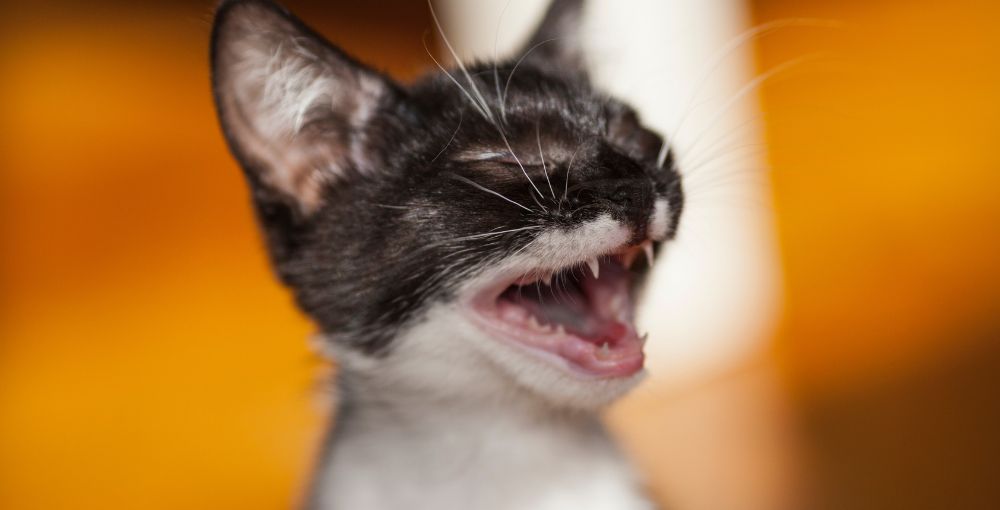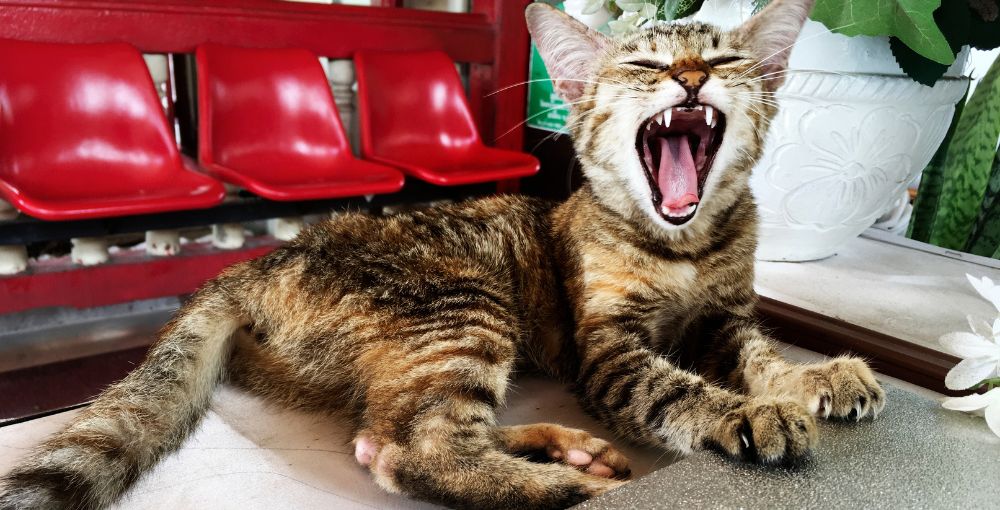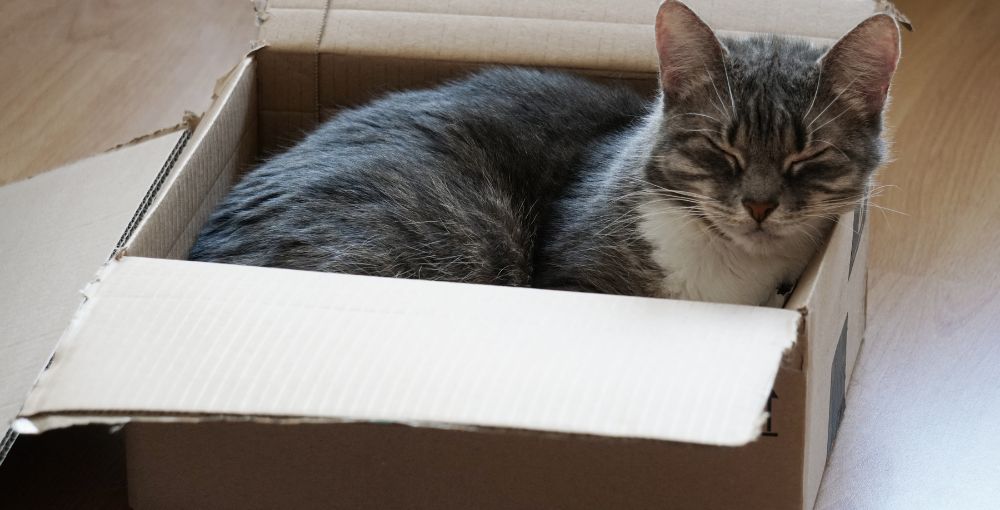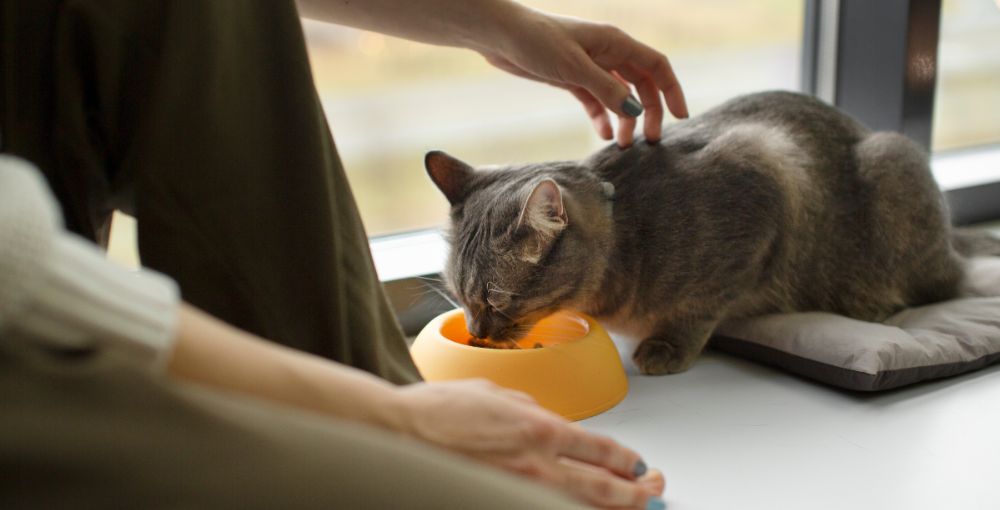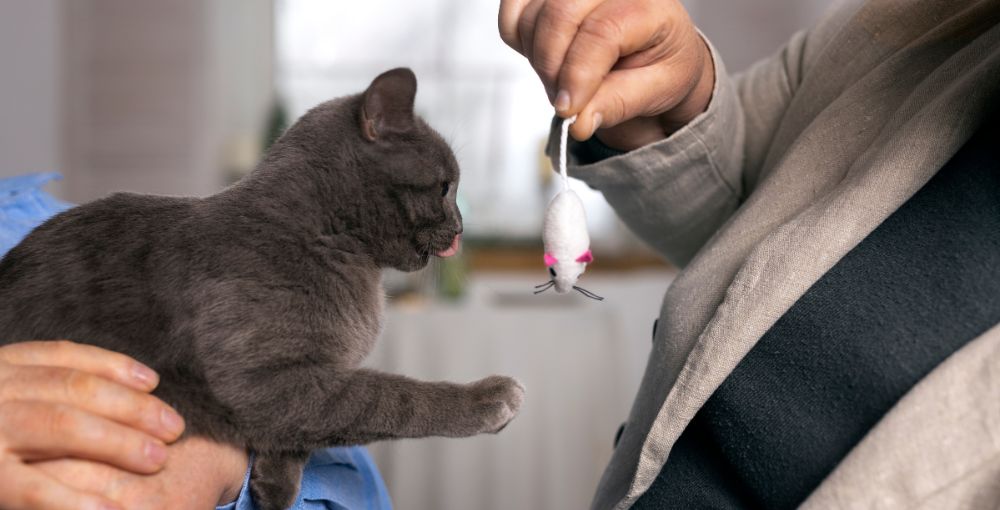Imagine, one morning you woke up from the bed hearing the continuous meowing of your beloved kitty. After searching it everywhere in your home at one point, you found it scratching your table continuously. That can be really annoying, right? Well, you are not the only one facing this abnormal issue.
Cat behavior problems like aggression, scratching furniture, waking you up in the morning, going outside the litter box, or meowing all the time can make your home a battlefield.
But don’t panic! We are here to help you deal with such cat behavior problems to make your home a calm and happy place to live. Whether you are a cat owner or just starting out, know the actual reasons behind their unwanted behavior from us. So, get ready to learn how to have a peaceful home with your feline companion.
What are some common problems with cats’ behavior?
In spite of having some exceptional cat behaviors, there are some common behavioral abnormalities most cat owners may notice in their cats. So, what are some common problems with them?
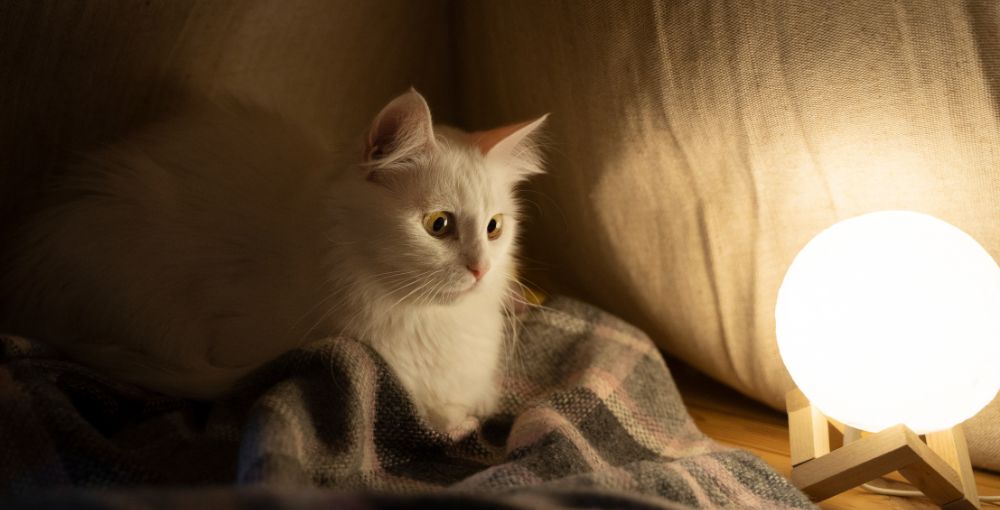
Howling at night
Meowing excessively at night is a common behavior of a cat as they are nocturnal. But it might be for other reasons too. So, you must try to understand the actual cause of your cat’s howling loudly while you are sleeping.
Continuous chewing
Sometimes cats chew continuously due to anxiety, boredom, or itching in their body. When they need more food or are separated from their mother too early they tend to chew. In the case of a kitten, when new teeth start to grow they chew continuously as they feel uncomfortable in their mouth area.
Sleeping on clean clothes
Cats love cozy and clean clothes very much. Even if you arrange a comfy bed for them, they will still prefer clean clothes for sleeping.

Eating houseplants
Although houseplants are not as tasty as fish or meat for an obligate carnivorous, they have a habit of nibbling the plants or trying to eat them.
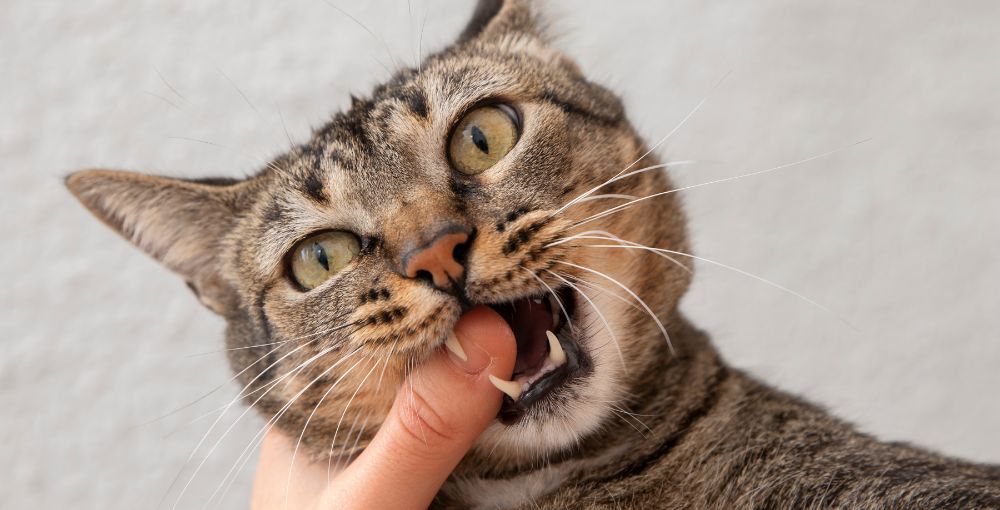
Nibbling or biting on fingers
Kittens have a tendency to nibble or bite their playmates. When they don’t find their siblings or friends to play with, they think it’s okay to nibble people’s fingers. But as they grow, their teeth get bigger and it can hurt you.
Excessive meowing
Cats may wake you up meowing excessively early in the morning if they feel hungry. You can follow some tricks to handle this morning’s wake-up call of your cats. We have given the tricks in the solution part of our discussion.
Jumping on tables
Cats love to climb to higher places and explore everything on the ground. If these are the only higher stuff in your house, you may see them jumping on the countertop or tables most of the time.
Scratching furniture
They scratch furniture due to excitement or expressing their emotions. Cats have scent glands in their paws. So, they want to mark the furniture with their own scent to identify this object for further scratching. Sometimes they do it to remove dead parts of their nails and make them sharp. You can also find them rubbing their face on your phone due to having this scent gland.
Having a drink from your water glass
Cats have a natural tendency to drink water from another place after taking their food as they are naturally wild animals. Besides that, they love to play with freshwater.
Not using the litter box
If the litter box is not big enough or you do not clean it regularly, your cats may go outside the litter box. You should keep a single and an extra litter box for each cat in your house.
What causes your cat to behave like this?
Cats show undesirable behavior due to various reasons. Before treating your cat to solve such behavioral issues, you should identify the actual reasons to know why your cat is behaving like this.
Stress or anxiety
Cats express aggressive behavior due to anxiety or stress. They become anxious when they have problems with other cats or people. When they feel stressed, they lick their belly excessively until there is no fur left.
Medical condition
Cats’ behavior problems may also be associated with certain medical conditions.
- Older cats may suffer from dementia or cognitive dysfunction. This reduces the functional capability of their brain and they become confused when performing their regular activities due to forgetfulness.
- Hyperaesthesia syndrome is a form of compulsive behavior that makes your cat aggressive when someone touches their back.
- Hormonal changes are also responsible for their aggressive behavior.
Getting scared of something
Generally, when a cat feels scared seeing something, it starts running away to escape from the scary thing. But if they think being aggressive makes the fearful things go away or if they can not escape themselves, they start showing aggressive behavior. However, being scared of seeing something that frightens the cat might be inherited also.
Unfamiliar environment or unfamiliar people
They feel worried if their familiar environment changes due to construction or other issues. Plus when someone unfamiliar comes and leaves the house. In such cases, they also feel trouble using their litter box and may become aggressive.
Cat breed with abnormal behavior
A cat breed called “Siamese” sounds more loudly compared to other breeds. They have a natural tendency to create noise at night to seek your attention.
Does any physical abnormality affect cats’ behavior?
Yes, apart from the emotional reasons, your cat may express abnormal behavior if they suffer from any kind of sickness or discomfort in their body.
- Pain in the body parts: If you find your cat meowing excessively or crying in the daytime, it might mean they are feeling pain due to various reasons. If they make noise while using the litter box, it could be because they are feeling pain or uncomfortable while peeing or pooping. When other cats pinch their legs while fighting, they feel pain and cry loudly. If they feel pain in any part of their body, they tend to lick that area continuously.
- Difficulty in urination: Due to having an infection, swelling, bladder stone, tumor, or some other physical issues cats feel problems during urination. Sometimes they stop peeing for a long time or pee outside the litter box.
How can you help your cat solve its behavioral problems?
Dealing with cat behavior problems can be challenging. But with patience and
understanding, you can help your cat overcome such unwanted behavior.
- Try to address the underlying cause of doing such unwanted activities. Then use alternative options to deal with such activities. Try to identify whether the reason behind that unwanted behavior is for any health issues, expressing emotions or it is their normal behavior. If your cat sleeps on the clean laundry it’s normal because most cats like to do that. So, you can use baby gaits to block their entry into the clean clothes.
- If they become too aggressive or tend to scratch any objects, provide alternatives like scratching posts or toys, to release their energy. You can also use small plastic covers called “nail caps” on their nails to protect the objects from damage.
- You can deal with the morning wake-up calls of your cat by setting an alarm everyday morning before they usually wake you up. Give them some wet food. If you follow this food-serving strategy after hearing the sound of the alarm, they will learn that it’s food time, not wake-up time. You can use an automatic cat feeder for your convenience in serving them food in the weakened morning.
- To prevent your cat from eating houseplants, you can provide them with their own plant like white grass or catwort. If they refuse to use such plants, you can protect your plants by using double-sided tape. And you must keep the toxic plants away from your house to ensure safety.
- You can make a spot 36 to 40 inches high near the window with a smooth surface for your cats to enjoy. So, they can climb over the spot without jumping on other places like tables or counters.
- Providing attractive options for scratching can help your cats stop scratching useful objects.
- Teaching desirable behavior is really helpful to help your cat overcome expressing unwanted behavior. Suppose, you can set some bowls with fresh water in different corners of your house and teach them to drink water from these bowls. If you try this technique several times, they will adopt this habit accordingly.
- You can manage the biting behavior of your kitten if you adopt them in pairs. Then, they will nibble other kittens while playing and stop biting you.
- Do blood and urine testing to rule out their health issues if you do not find other reasons for doing unwanted activities.
- Spending quality time with your kitty would be very helpful in relieving their stress and boredom.
- Consulting a veterinarian can help you identify the underlying cause of your cat’s behavior problems and plan for the best treatment program. If your cat has litter box issues you should first talk to the vet to understand whether this behavior is related to their health condition or not. If they have no health issues, you can solve the problem by removing dirt from it or following other techniques, that we have already discussed. Besides that, you can change the previous litter box and purchase a new cat litter box with additional features.
Ultimately
Cats experience different kinds of emotions like being scared, happy, worried, hungry, or upset, which may affect their behavior. To express their emotions they do some undesirable activities. Apart from that, some behavioral problems are related to their health condition.
And we are successfully able to treat or solve those behavioral problems of our cats. So, today we have tried to help you solve such undesirable cat behavior issues by maintaining a good bond with it. If you can treat your cat’s behavioral problems with our tips, drop a comment to let us know about it. Don’t forget to share our discussion with anyone seeking guidance on correctly solving cat behavioral problems.


